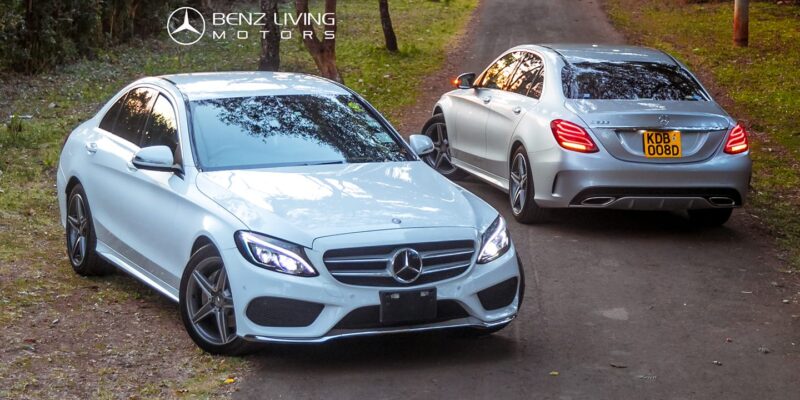If you have been shopping for import cars in Kenya for the past few months, you have definitely noticed how much more expensive those fossil-fuel-powered earth destroyers have become. As an example, a Mazda Demio that once cost around KES 600k to purchase now carries a price tag of not less than KES 1Mn.
The story is the same with cars of all categories, even worse for luxury brands whose prices have gone up almost 2x – just have a look at the “new” C-Class. So what’s causing this? Have all importers conspired to mince more money from car buyers or are the new prices justified?
While part of the cause for the high prices is an effect of commissions being paid to importers, the bulk of the high cost is being brought about by the external effects:
Price of the dollar
It’s not a secret that the price of the dollar has not been kind to the Kenyan shilling. Because we import used cars from foreign markets like Japan, Singapore and the UK, our currency of trade is the dollar and its high exchange rate means Kenyans have to give up more shillings for the same amount of dollars as before.
While pre-covid you’d give 100 shillings for 1 dollar, right now you have to give up around 106 – 110 shilling for the same dollar. This may not seem a lot but it means that a car that would have cost you 1Mn to buy in 2019, needs an 80k top-up.
Low Supply From Import Country
A bigger factor than the dollar is how expensive used cars have become in export countries. Due to the pandemic, people in export countries are not upgrading to new cars ad thus providing their used cars for our market. Besides, there’s a bigger problem of low supply of new cars thanks to a chip shortage (an article on this coming soon) which has further led to the export markets holding on to their cars for longer.
This imbalance in supply and demand has led to the few cars making their way to the second-hand market costing an arm and a leg.
Transport Cost
Remember how the onset of COVID-19 shut down everything? Well, that applied to ships as well – which is the primary transportation for cars. This means that the law of supply and demand comes into play again. So many items to be shipped (due to the backlog) and very few ships operating. Guess what happens? The freight operators increase the prices and this is trickled down to customers.
While things seem to be slowly going back to normal in other areas of our lives, the prices of cars will not be coming down any time soon – I wouldn’t be surprised if they never do thanks to the greed of importers. Beyond this current problem which may last a few years, there’s another bigger problem awaiting Kenyan car buyers in 2027 and 2028 but that’s a story for another day.






I think this article ignores some details like import duties. Import duties almost double the price of a vehicle, which then balloons the price of all cars. We need to consider duty-free and how this can aid car buyers as they seek to improve their economic prospects. There is no reason vehicle prices should be unaffordable for 7-year old used cars that someone previously purchased, drove comfortably, became bored, possibly sold to someone else before it ended up in Kenya. If anything, for the prices we pay, Kenyans could purchase unused, brand-new vehicles straight from the factory. So someone somewhere is enriching themselves by charging the common mwanainchi egregious rates and making life difficult/expensive for all Kenyans.
Shipment charges are one of the biggest problems being faced in import and export activities. Import of Japanese cars
are no doubt increasing and this business contains much potential in it. Authorities should must have a look at it.